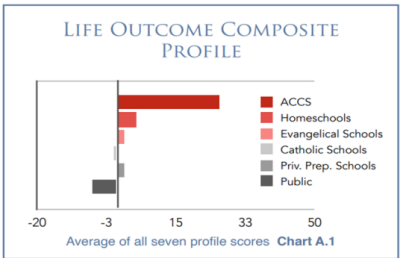Education
One of the most important parenting decisions made relates to the education of our children.
All of parenting of course is education in the sense that the word, from the Latin educationem, means "a rearing, training;" initially relating to social relationship and manners, and later "systematic training for work."
But education is much more than social skills and preparation for work. Education involves the formation of perspective, world view, character and values - ultimately what it means to be human, the potential in being created in the image of God.
Plato viewed education akin to the process of coming out of a cave, unknowing, into the light.
How can we as parents best do this?
Four basic approaches:
1. Public education which was initially founded to enable the poor to read and write in order to function more effectively in society and it's economic system. It has evolved to become the baseline-level government funded promoter of socialization in the secular worldview.
2. Christian education involves building on the Biblical worldview centering on the Missio Dei and our role in it; how redemption in Christ shapes our lives and relationship with God our creator, neighbour (compassion, social responsibility, history), self (core identity, character and values) and stewarding of creation to reflect the glory of God.
3. Classical education may be least understood in our culture but is the means by which many influential leaders have been shaped. More on this momentarily.
4. Home schooling. Some parents (or association of parents) educate within the bounds of one or more of these streams in a intergenerational setting. (Most argue that all parents should be primarily engaged in their children's education - particularly the shaping of values - even if they delegate parts of the educational process to others.)
There are also two "hybrid" approaches:
1. Sometimes classical education is combined with Christian education
2. Sometimes classical education is combined with secular education in private prep schools.
But which best prepares children for adult life?
Consider these factors in this complex question.
What is true and good? It is important to recognize each approach is oriented to a vision of what is true and what is good, and to acknowledge that not all worldviews agree on what is true or what is good. Many consequential examples can be given.
What best enables our children's success in life? Another factor is the degree to which each educational approach prepares our children to be successful in our challenging world. By this we mean of course not only successful in terms of advancing personal interests but successful in contributing to the health and healing of our troubled world.
What is within reach? This question involves practical matters such as availability, cost and resources. But even within these constraints it is important to do the best we can towards best outcomes.
What is Classical Education?
Classical education historically is built on foundations of grammar, logic, rhetoric, math, and
a classical language (Latin or Greek). What do diverse and seemingly
unrelated subjects like these have in common? Each is "layered" in
the sense that step one must be mastered before one can benefit from step two.
This process continues through elementary, middle and high school following a
centuries old method known as the Trivium, designed to train the mind at
different stages of development:
Grammar Stage: This phase focuses on foundational knowledge not limited to
English grammar but the basic building blocks of learning, such as phonics,
spelling, foreign language vocabulary, history, science, and math facts. This
stage typically corresponds to elementary school years.
Logic Stage: in middle school, the Logic Stage encourages students to ask “Why?” and to understand the relationships between different fields of knowledge. It involves studying formal logic, algebra, and applying critical thinking to all academic subjects.
Rhetoric Stage: In high school, students learn to express themselves with clarity and originality. They learn to apply the rules of logic to their foundational knowledge and specialized areas of interest, developing persuasive writing and speaking skills.
Classical education emphasizes the development of moral virtue and responsibilities of citizenship. It aims to cultivate a lifelong passion for learning, the ability to think critically and communicate effectively. For more...
https://welltrainedmind.com/a/classical-education
www.the-classical-academy.com/classical-education-101-what-exactly-is-it
https://classicalacademicpress.com/pages/what-is-classical-education
https://atlantaclassical.org/wp-content/uploads/2014/08/What-is-Classical-Education.pdf
What is Classical Christian Education?
As the heading suggests this option combines the mental discipline of a classical foundation with the worldview of the Bible.
Why is this approach worth considering, even though only a very few schools offer the option?
Primarily because of the results. Consider this summary graph comparing outcomes of six educational approaches:
ACCS refers to Association of Classical Christian Schools. Take a few minutes to review the study conducted by the Cardus Education Survey (from which the above graph is taken) HERE.

